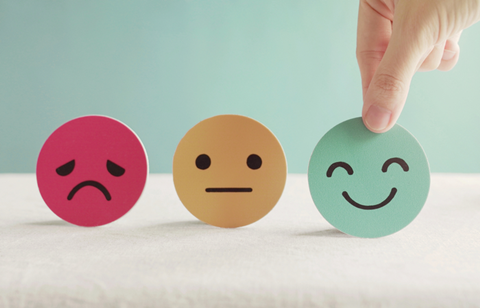
The majority (71%) of employees surveyed said their business increased its focus on mental health due to Covid-19 (Coronavirus), but only 25% said their employer has maintained that focus in the past year.
Mental health and wellbeing solutions provider Headspace Health’s Fourth annual workforce attitudes toward mental health report compiled data from more than 500 CEOs and 5,400 full-time employees in the US, Australia, Germany and the UK, to examine workplace issues that drive stress and burnout.
The data found that 83% of CEOs and 70% of employees have missed at least one day of work due to stress, burnout and mental health challenges, with only 28% of employees feeling very engaged in their work. Top global stressors for employees were found to be Covid-19, burnout due to increased workload or lack of staff, poor work-life balance, and poor management and leadership.
However, Headspace found that the intensity of employees' stress was slightly lower than pre-pandemic. For example, 15% reported extreme stress in 2020 prior to the pandemic, which rose to 19% when the pandemic hit, and 18% in 2021, but has now dropped to 12%.
More women (40%) felt burned out at work than men (33%) or non-binary individuals (34%), although the latter reported a wider range of stressors at work than their male and female counterparts.
Meanwhile, 89% of CEOs agreed that there is a positive and direct link between diversity and inclusion programmes and employee mental health.
In 2022, 65% of CEOs reported talking about their mental health in the workplace, compared with 35% in 2020. The majority (75%) of employees said they appreciate it when their leaders speak openly about mental health.
The vast majority (94%) of CEOs said they do enough to focus on their workforce’s mental health, but only 67% of employees felt the same way. More than 80% of employees agreed that it is the employer’s responsibility to help with this, and 82% wanted their employer to ask them how they are and actually care about the answer.
There was a steep decline in how many employees reported it was 'very easy' to access mental health support and benefits, from 37% in 2020 to 18% in 2022. However, 53% of CEOs said it was 'very easy', suggesting a further perception gap.
Globally, more than half of employees have tried a technology-based mental health service, with blue-collar workers and CEOs reporting the highest usage rates. Some 91% of leaders take advantage of the support at least occasionally, and 60% of CEOs use it regularly, compared with 37% of employees.
Russell Glass, chief executive officer of Headspace Health, said: “Employee mental health is a business continuity issue that every leader needs to address, particularly as many employees return to the office and experience new day-to-day stressors. To attract and retain talent, it’s critical that leaders destigmatise mental health from the top-down and meet the growing expectations of their employees for high-quality benefits.”
















